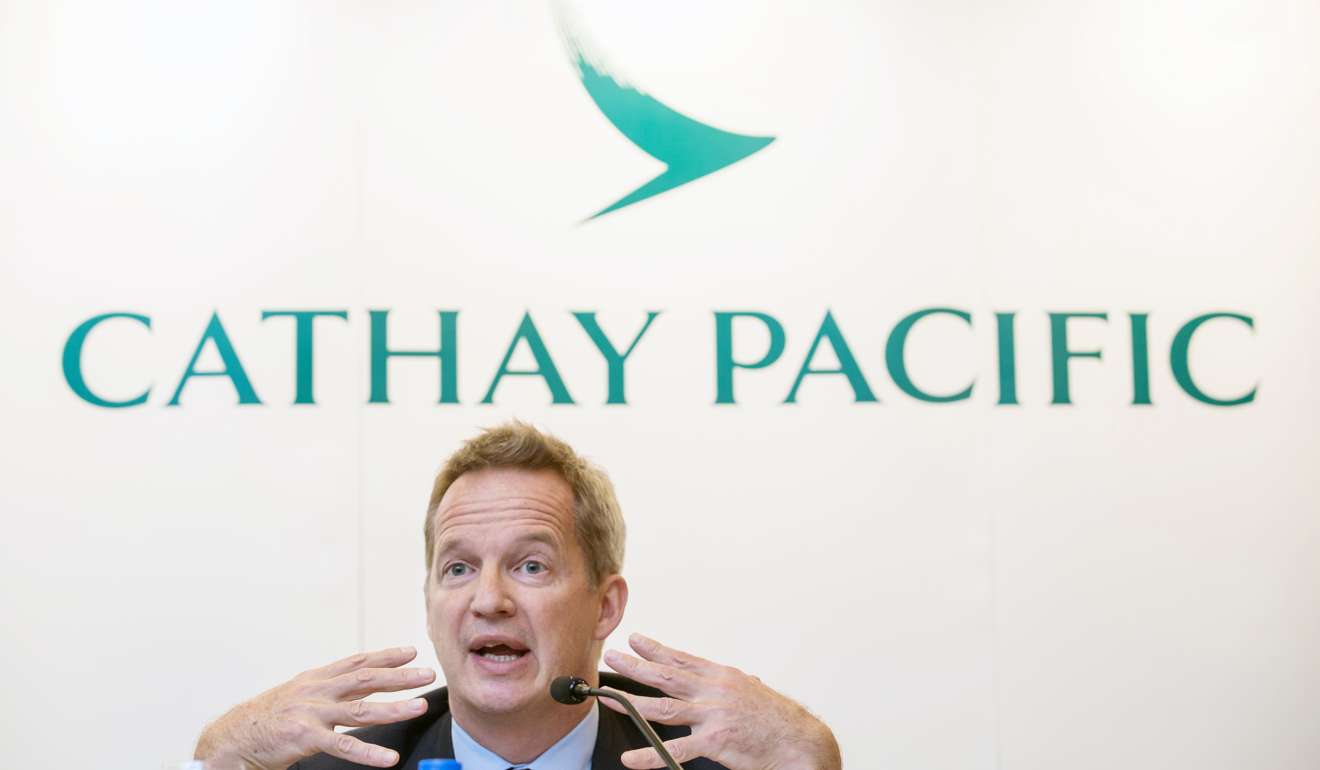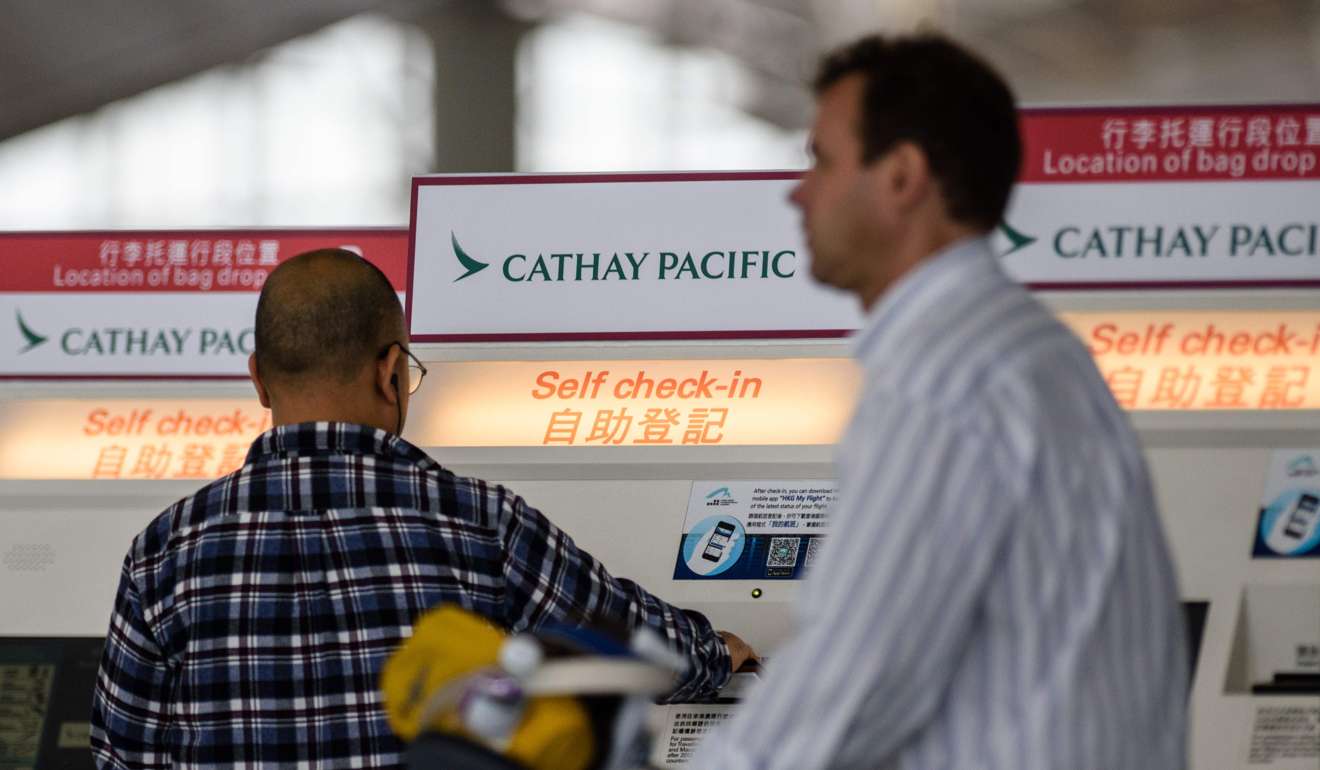
Cathay Pacific has an arduous flight ahead before it can hope to silence its armchair critics
It can also expect the competitive backdrop to become ferocious as mainland airlines become stronger and more ambitious
If I discovered last week that the subject of dog poo could stir deep and powerful emotions among literally hundreds of readers, then that is as nothing compared with emotions stirred on the subject of aviation.
Almost all of us in Hong Kong have made many air journeys – which of course means that we all regard ourselves as experts, and have armloads of anecdotes and battle scars to illustrate our pains and indignities. An air journey brings together a unique combination of stress, aggravation, tedium and fatigue. This unique cocktail often generates dreadful experiences that are only amplified by each airline’s preposterous marketing claims.
Look no further than United Airlines – I wonder what the American Chinese doctor David Dao feels about United’s “Fly the friendly skies”?
This angst-laden process begins with the challenge of packing the coming week’s or month’s necessities into a 20 kilo suitcase – and knowing, for example, that airlines like Emirates now strangle your hand-carry wiggle room by limiting that to 8 kilos.

Then comes the scramble to the airport, with fears of delay, worries over whether anything important has been left behind, and the lower lumbar stress of lumping the weight of a large dead dog on and off buses, trains or into and out of a scruffy taxi trunk – only to join the economy-line scrummage once you have found check-in.
Does any one of us not have multiple dreadful memories from undressing through surly airport security, or wandering displaced through the zombie-zone they call duty free shopping, or finding a seat near the gate around the restless sleeping bodies sprawled across two or three seats at a time?
The behaviour of our fellow human beings seems never at its best in such anonymous, displaced circumstances.
Watch the tight, polite smiles as fellow travellers jostle with each other for overhead luggage space, or climb over your legs in mid-flight expeditions to the toilet. My daughters still recall nightmares from the dreadful violent sucking sound of the toilet flush.
Surely human beings were never physically or psychologically designed to spend multiple hours so intimately jammed up alongside so many total strangers. The forced intrusion on deeply personal space for such sustained periods – the forced requirement to tolerate it – is surely the stuff of thousands of psychiatrists’ theses?

And of course, journey’s end is fraught with fresh sets of traumas: that anxious wait to discover whether your suitcase has arrived with you, or is in one piece – Rimowa suitcase or not; the surly interrogation of immigration officials.
People say we suffer jet-lag, but I sense that much of what we describe as jet-lag is in reality the accumulated stress of each stage of the air travel process.
No wonder, then, that when my fellow-columnist Peter Guy took an axe to Cathay Pacific three weeks ago, with a clever mix of well-made points and cheap tricks, he unleashed an absolute avalanche of spleen. Hundreds of readers took the opportunity to vent. And when Cathay’s head of corporate affairs wrote a letter in response, he triggered a second avalanche almost as large.
To renew Cathay we simply have to take action. We must adapt faster than we do at the moment… We have not been through this scale of transformation for more than 20 years
The message to Cathay – which to be fair is one of Hong Kong’s better managed enterprises, even ignoring its marvellous Hong Kong Rugby Sevens TV adverts – is that there are multiple thousands of Hong Kong people who nurture a combination of reasonable pain and unreasonable prejudice against Hong Kong’s main local airline.
Where Peter was profoundly wrong was in his claim that Cathay management either was unaware of, or was not concerned about, these deeply negative customer sentiments.
I am sure Peter – and the hundreds of on-line critics of Cathay Pacific that vented thousands of words in the wake of his article – would like to claim that the past week’s management reshuffle that sees CEO Ivan Chu step down to be replaced by COO Rupert Hogg was directly due to their onslaught.
But they would be wrong. Back on January 18 the management pulled all senior staff together at Cathay City for a one-day retreat to examine the structural challenges they faced, and to discuss changes needed, against a backdrop of appalling annual results that were not just to do with fuel-hedging losses. A month ago, a new in-house journal called “The Journey” was launched to “put the customer at the heart of everything we do” – a clear recognition that many long-time loyal customers were deeply unhappy and dissatisfied.
Chief executive Ivan Chu was clear on failings: “The financial results for 2016 paint a stark picture and confirm that we can’t keep running our airlines the way we have been.. To renew Cathay we simply have to take action. We must adapt faster than we do at the moment… We have not been through this scale of transformation for more than 20 years.”
I was aware of the difficult competitive backdrop, but must confess that I was caught quite by surprise by the extremity of Cathay’s crisis. A company does not look to cut 30 per cent of staffing costs without something being radically out of order
As someone who has spent much time over the past three decades trying to analyse and understand the aviation industry as a critical ingredient in Hong Kong’s success as Asia’s leading headquarter hub, I was aware of the difficult competitive backdrop, but must confess that I was caught quite by surprise by the extremity of Cathay’s crisis. A company does not look to cut 30 per cent of staffing costs without something being radically out of order.
For Peter Guy, and the many hundreds of readers who have lashed out at Cathay over the past weeks, there must be grim comfort to know that your concerns and complaints have been heard.
But scepticism will remain until some real actions occur that build on the new words.
A new structure at the top of the company – which will split the number two chief operating officer job into two – a COO looking at the group’s internal operations efficiency, and a chief customer officer tasked to focus exclusively on air travellers’ needs and the quality of customer service – seems an intelligent way to begin their restructuring process.
But the challenge is not small. The competitive backdrop is ferocious as mainland airlines become stronger and more ambitious. Revenues from business travellers will continue to be squeezed as the post-2008 contraction of the financial services industry continues unabated.
Profit margins will continue to be horribly mean. And the splenetic outbursts of us armchair experts must be recognised as a constant while international air travel remains so intrinsically stressful. Welcome to the unfriendly skies.
David Dodwell researches and writes about global, regional and Hong Kong challenges from a Hong Kong point of view

